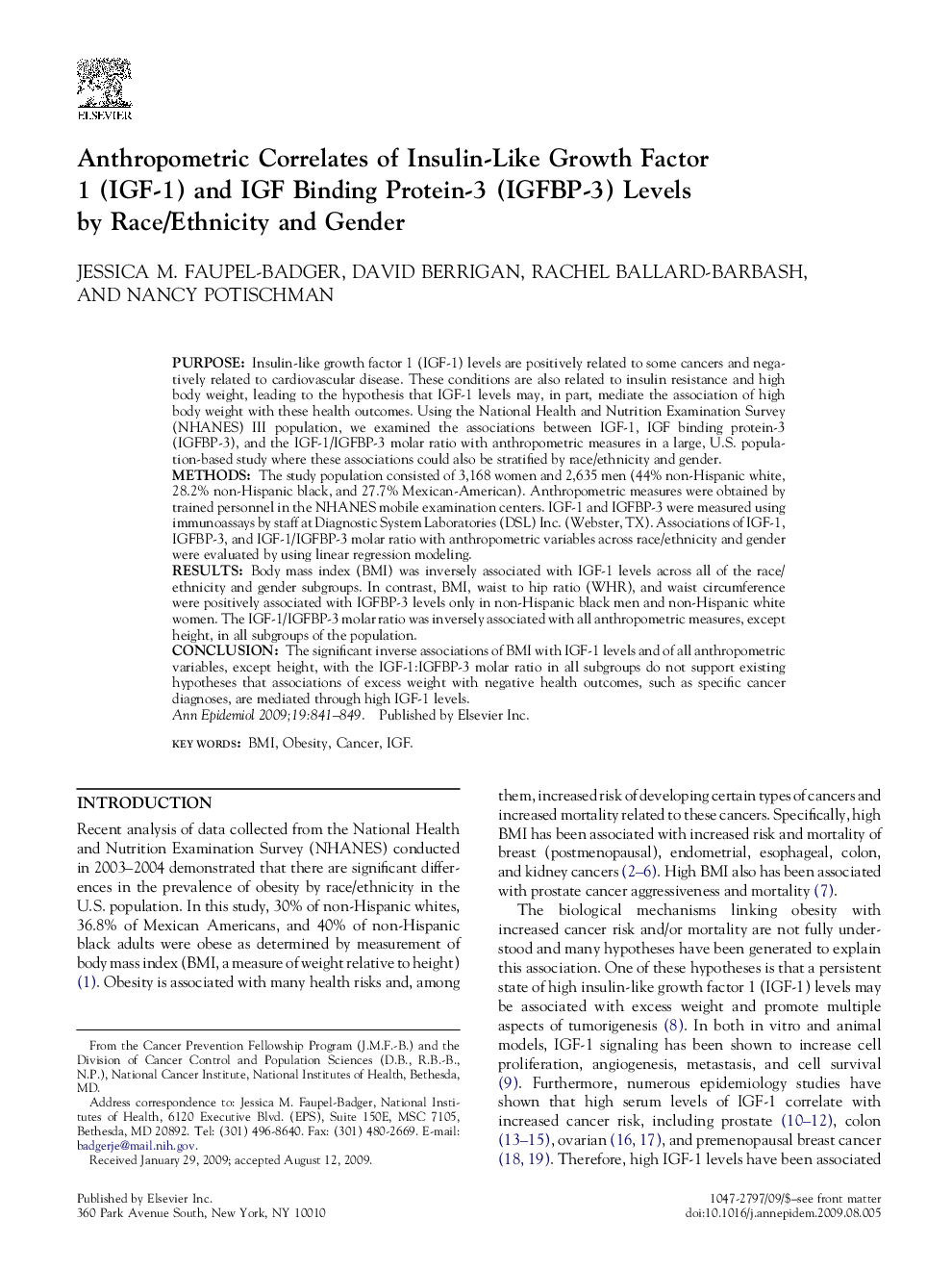| Article ID | Journal | Published Year | Pages | File Type |
|---|---|---|---|---|
| 3444888 | Annals of Epidemiology | 2009 | 9 Pages |
PurposeInsulin-like growth factor 1 (IGF-1) levels are positively related to some cancers and negatively related to cardiovascular disease. These conditions are also related to insulin resistance and high body weight, leading to the hypothesis that IGF-1 levels may, in part, mediate the association of high body weight with these health outcomes. Using the National Health and Nutrition Examination Survey (NHANES) III population, we examined the associations between IGF-1, IGF binding protein-3 (IGFBP-3), and the IGF-1/IGFBP-3 molar ratio with anthropometric measures in a large, U.S. population-based study where these associations could also be stratified by race/ethnicity and gender.MethodsThe study population consisted of 3,168 women and 2,635 men (44% non-Hispanic white, 28.2% non-Hispanic black, and 27.7% Mexican-American). Anthropometric measures were obtained by trained personnel in the NHANES mobile examination centers. IGF-1 and IGFBP-3 were measured using immunoassays by staff at Diagnostic System Laboratories (DSL) Inc. (Webster, TX). Associations of IGF-1, IGFBP-3, and IGF-1/IGFBP-3 molar ratio with anthropometric variables across race/ethnicity and gender were evaluated by using linear regression modeling.ResultsBody mass index (BMI) was inversely associated with IGF-1 levels across all of the race/ethnicity and gender subgroups. In contrast, BMI, waist to hip ratio (WHR), and waist circumference were positively associated with IGFBP-3 levels only in non-Hispanic black men and non-Hispanic white women. The IGF-1/IGFBP-3 molar ratio was inversely associated with all anthropometric measures, except height, in all subgroups of the population.ConclusionThe significant inverse associations of BMI with IGF-1 levels and of all anthropometric variables, except height, with the IGF-1:IGFBP-3 molar ratio in all subgroups do not support existing hypotheses that associations of excess weight with negative health outcomes, such as specific cancer diagnoses, are mediated through high IGF-1 levels.
